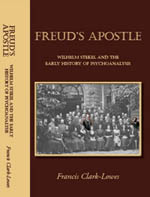I seems obvious to me that humans, as well as all the higher animals (to go no further), seek their own happiness. Is this the same as saying that we seek pleasure and avoid pain? I’m not sure it is. Pleasure is not exactly equivalent to happiness, nor pain to unhappiness. Happiness has to do with balance, which is no doubt why the ancient Greek philosophers spoke of ‘moderation in all things’. Happiness or unhappiness are longer-term than pleasure and pain. It has often been observed that the unbridled pursuit of pleasure leads to unhappiness, and pain may lead a person to discover inner resources which enable a higher, and more serene, consciousness.
For much of my life, however, I refused to accept this distinction between pleasure/pain and happiness/unhappiness. In doing so I was swimming along in the mainstream Western Zeitgeist. But though this was my position philosophically, I didn’t always live my life as if it were so.
Happiness, I found, often came along rather unexpectedly – in a sunrise, or a piece of music, or an achievement, or a moment of truth, or a friendship. Here’s a little piece, called ‘Allo Sunshine’, which I wrote for Christine Hollywood’s writing group on 29th October 2008:
“‘Allo Sunshine!’ You can see why they say it. The image is if a quality which a cheerful face and a sunny day have in common. I’m thinking especially of a crisp sunny morning – just enough to chill the air and make it invigorating. I step out of my house and instantly feel alive, happy, optimistic. The sunshine has actually created the air – that particular mixture of oxygen and ozone which no doubt, together with the bright sun, makes the birds sing. The word ‘magical’ comes to mind. There is dew, a bit of mist and sparkling light. It is impossible to feel sad.”
As a young man I already knew these things, but I got tired of being the odd one out. And so eventually I abandoned my ideals and joined the headlong search for pleasure. To my surprise, it often brought me more heartache than happiness.
Psychiatrists tend to see the body as a chemical factory which is fine when everything is in balance, but the cause of mental distress when it isn’t. I’m sure there’s a lot in that. But what is chicken and and what egg? When I decide to take a walk because I know that fresh air and exercise will make me feel better, was my decision chemically determined, or did I manage the chemistry?
Here are some other examples. I watch a horror film because it stimulates an adrenaline rush, I eat a trifle because of the pleasurable feelings it causes in my taste buds and beyond, I study for a doctorate because, among other reasons, it deepens my understanding of the world we live in, and therefore my sense of control over it, I listen to music because it produces a feeling of exaltation, I open this website because I feel it’s time to draw up an account of my life.
In other words I believe in free will. Not to do so makes a mockery of choice. Believing in it may be philosophically difficult, but I’ve persuaded myself, not impossible. Our bodies have evolved to exercise a very considerable degree of control over our ‘chemical factory’, and it has mechanisms such as laughing, crying, shouting, sex and sleeping for restoring a desirable balance.
But we are not powerless in relation to the body. Rather I see some central core part of ourselves – some might call it the soul – as being the manager. Like a manager, this part of us cannot oversee everything all the time, but it can work with the body to produce some of the desired effects some of the time.

